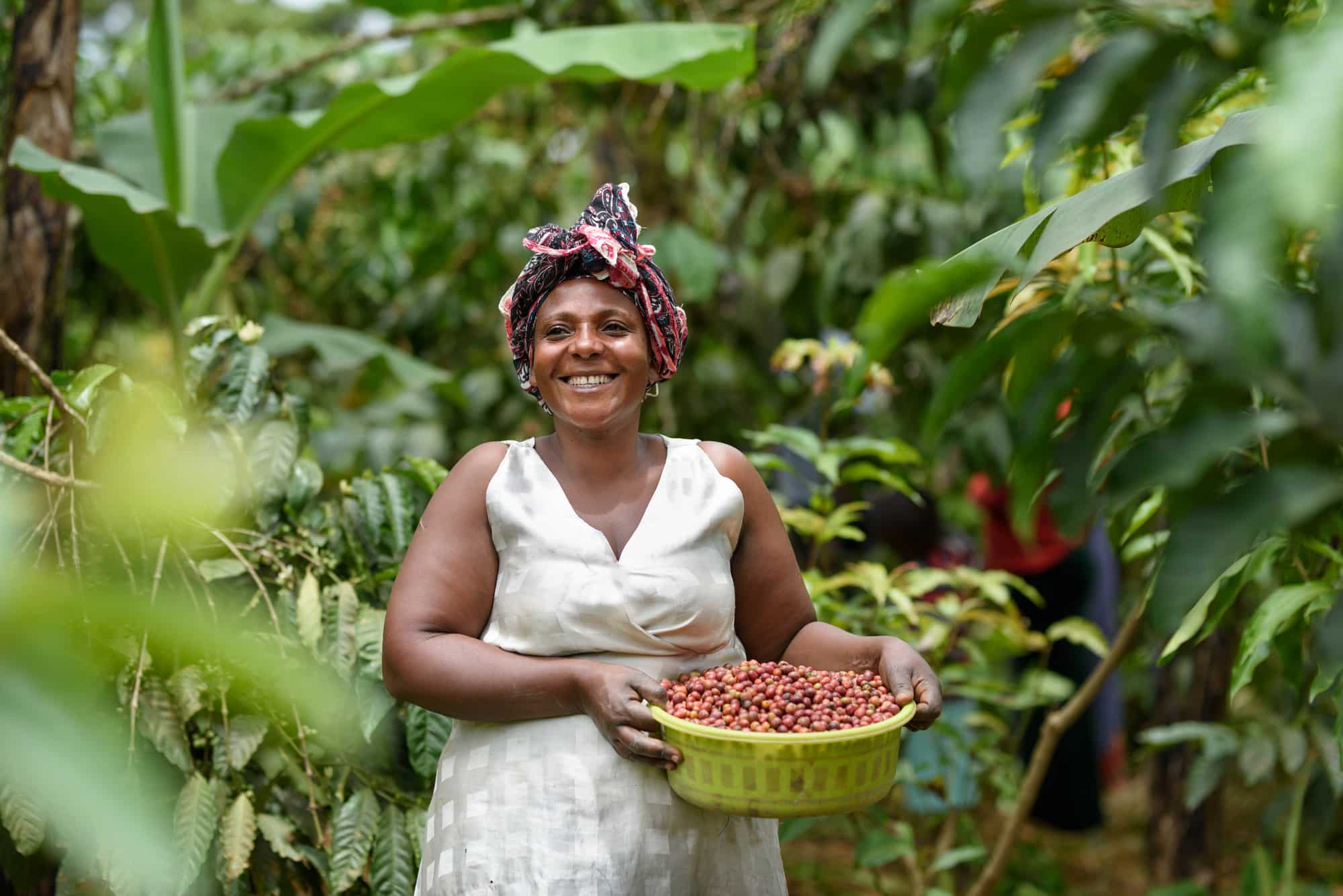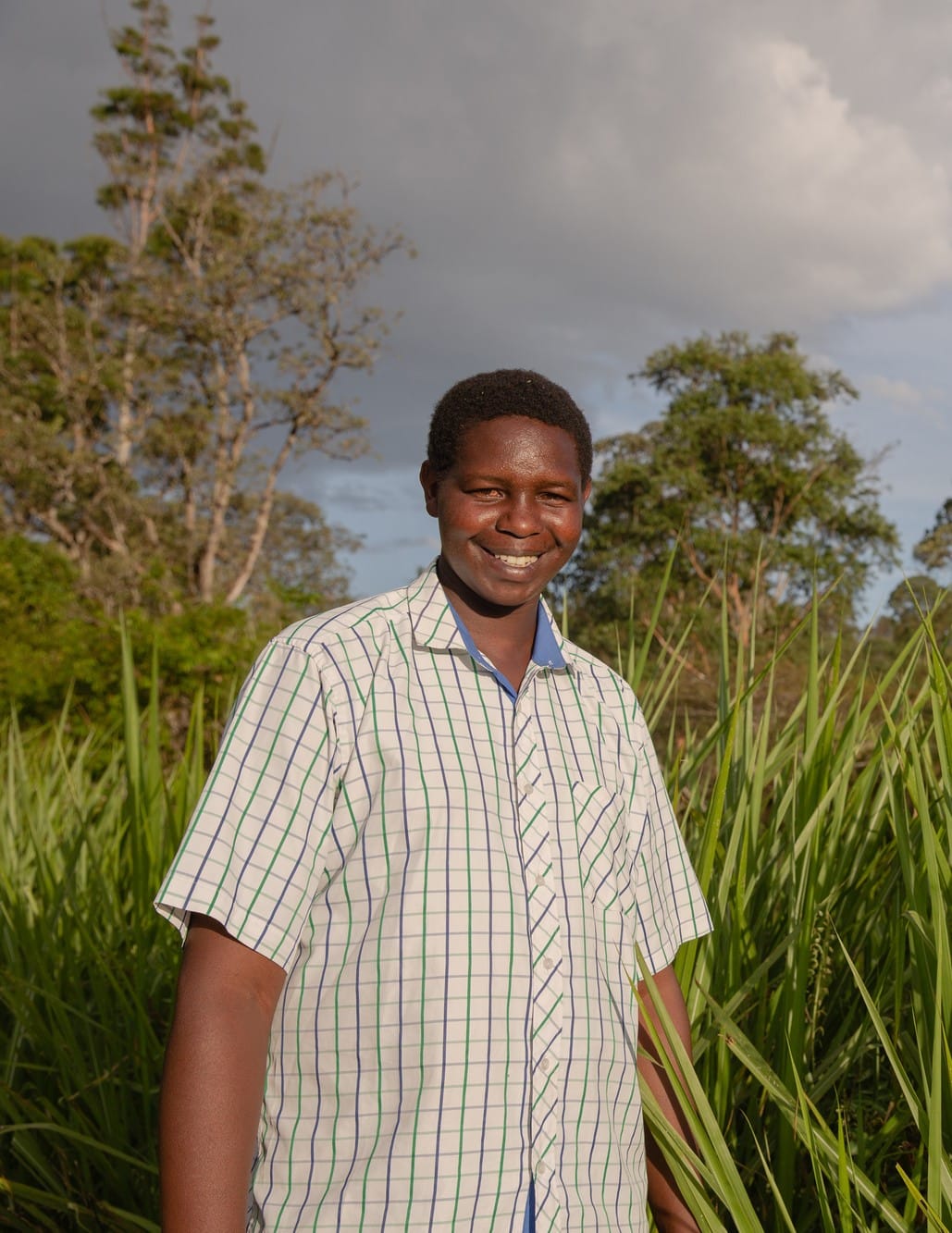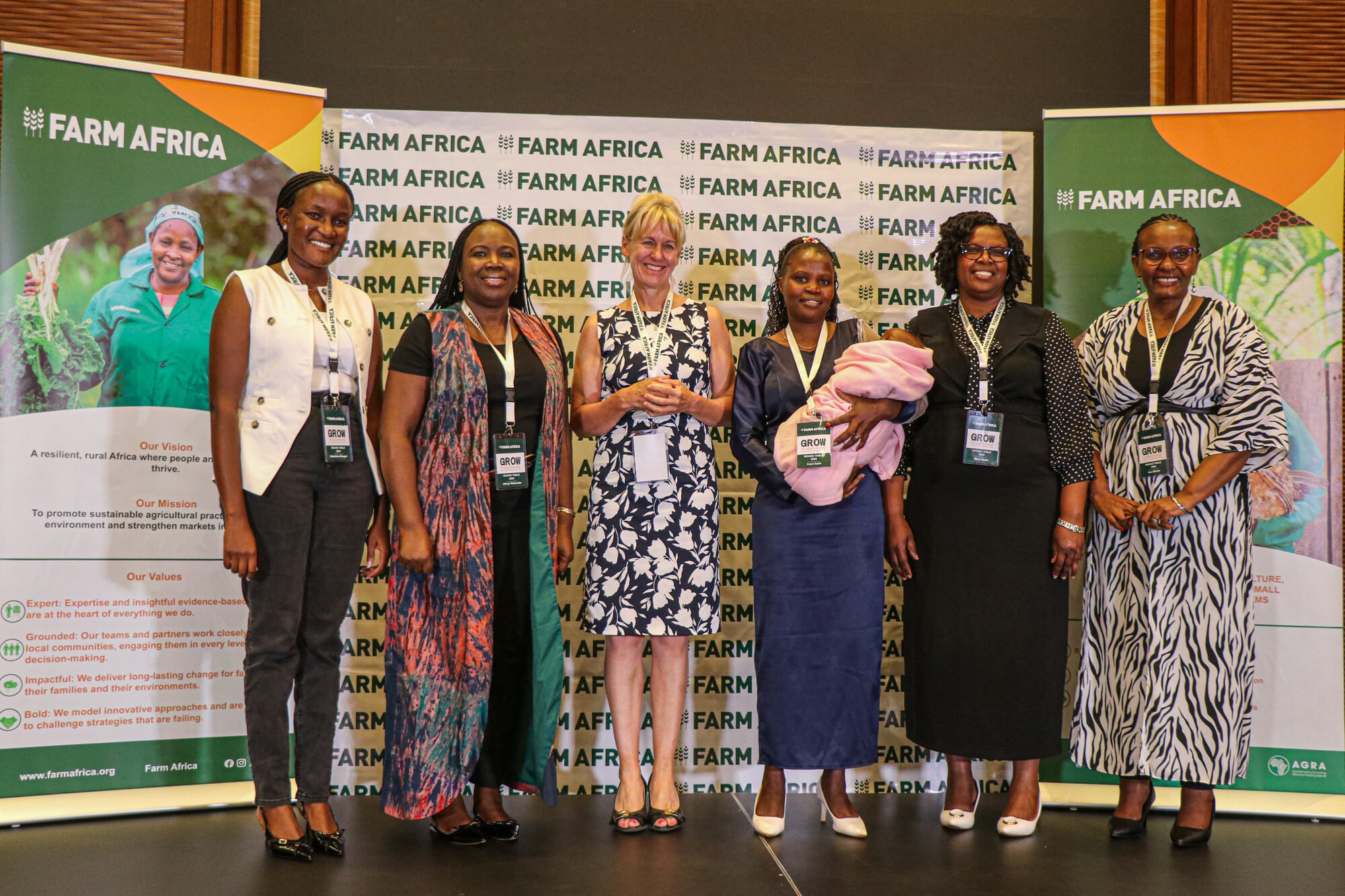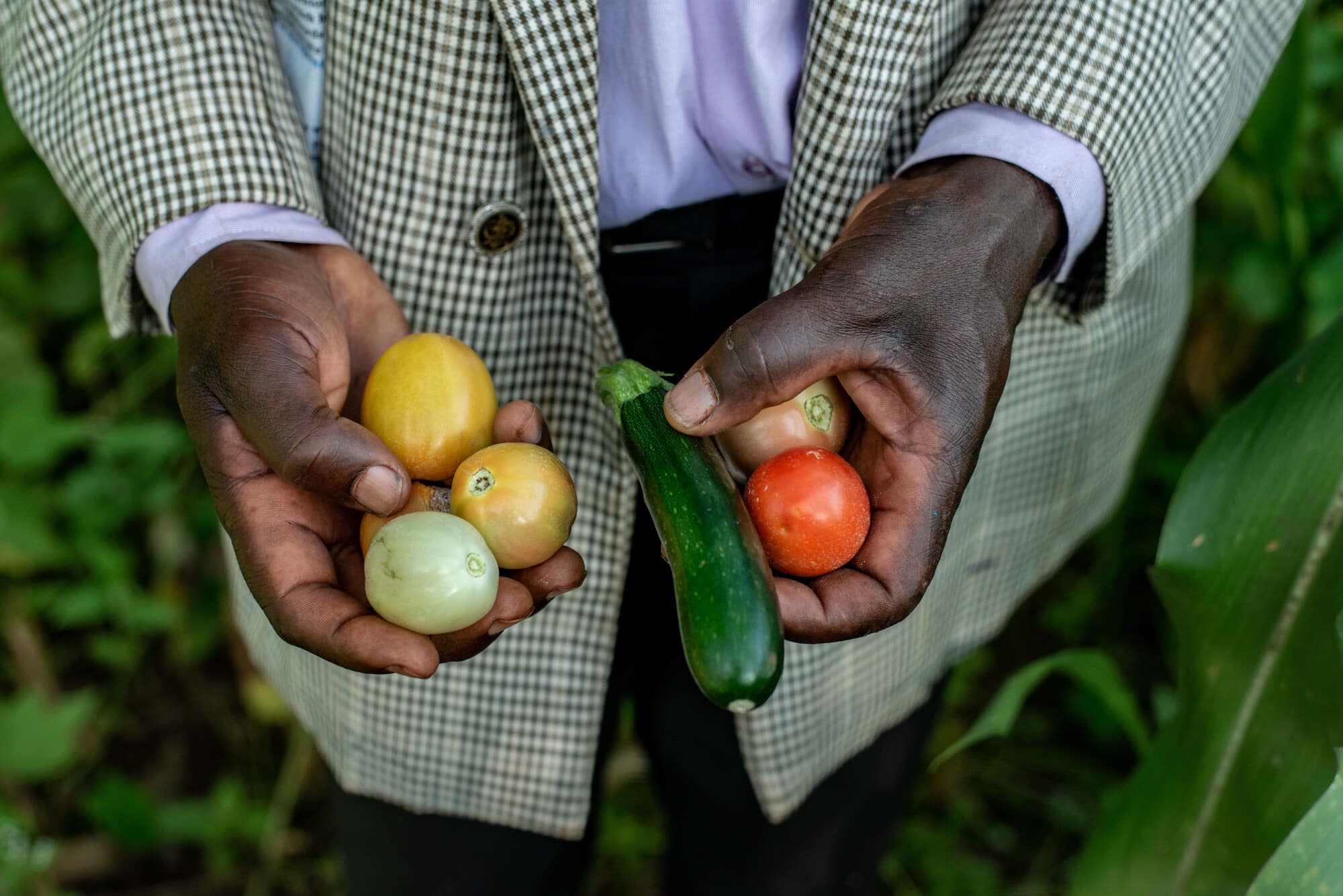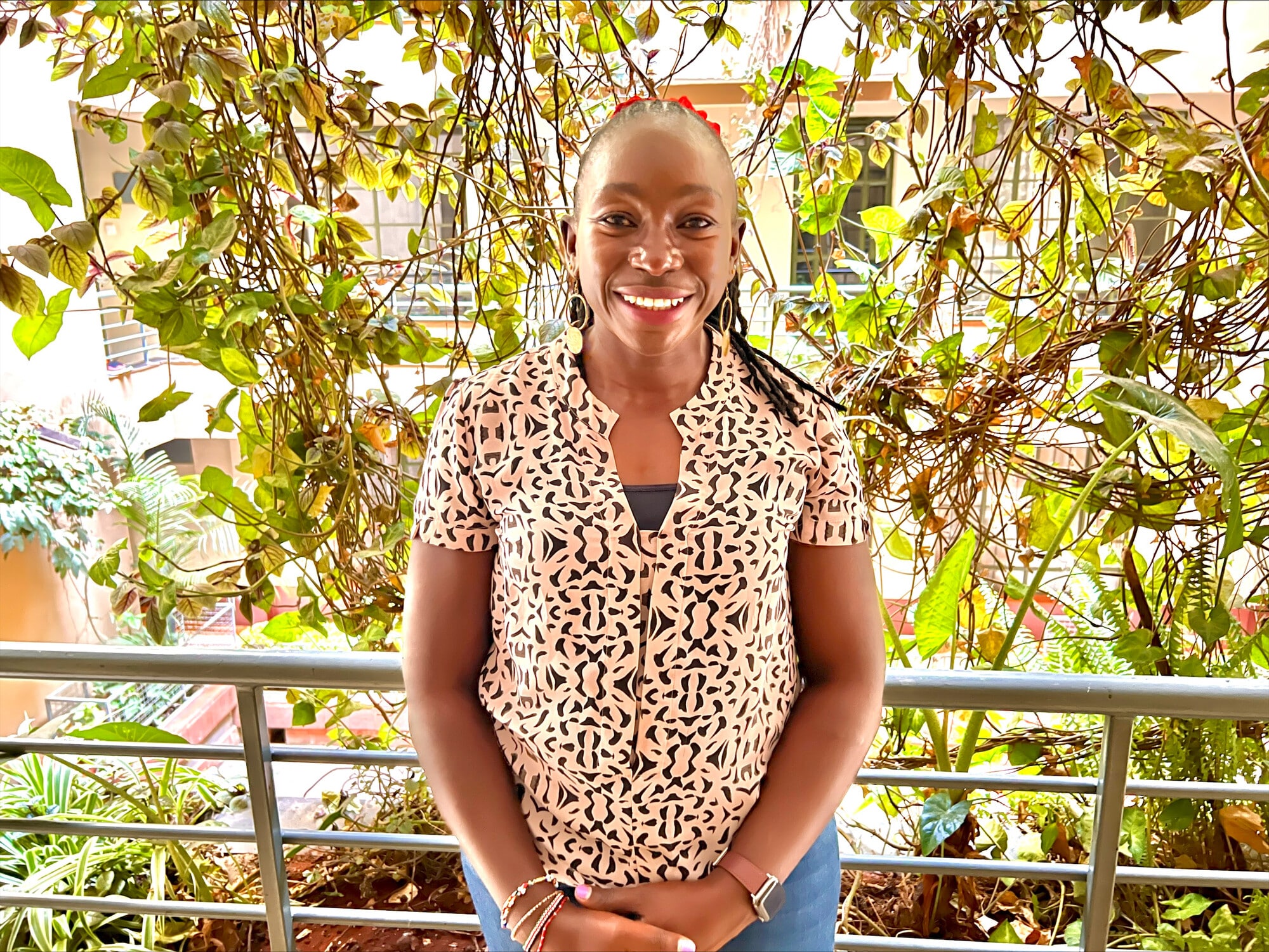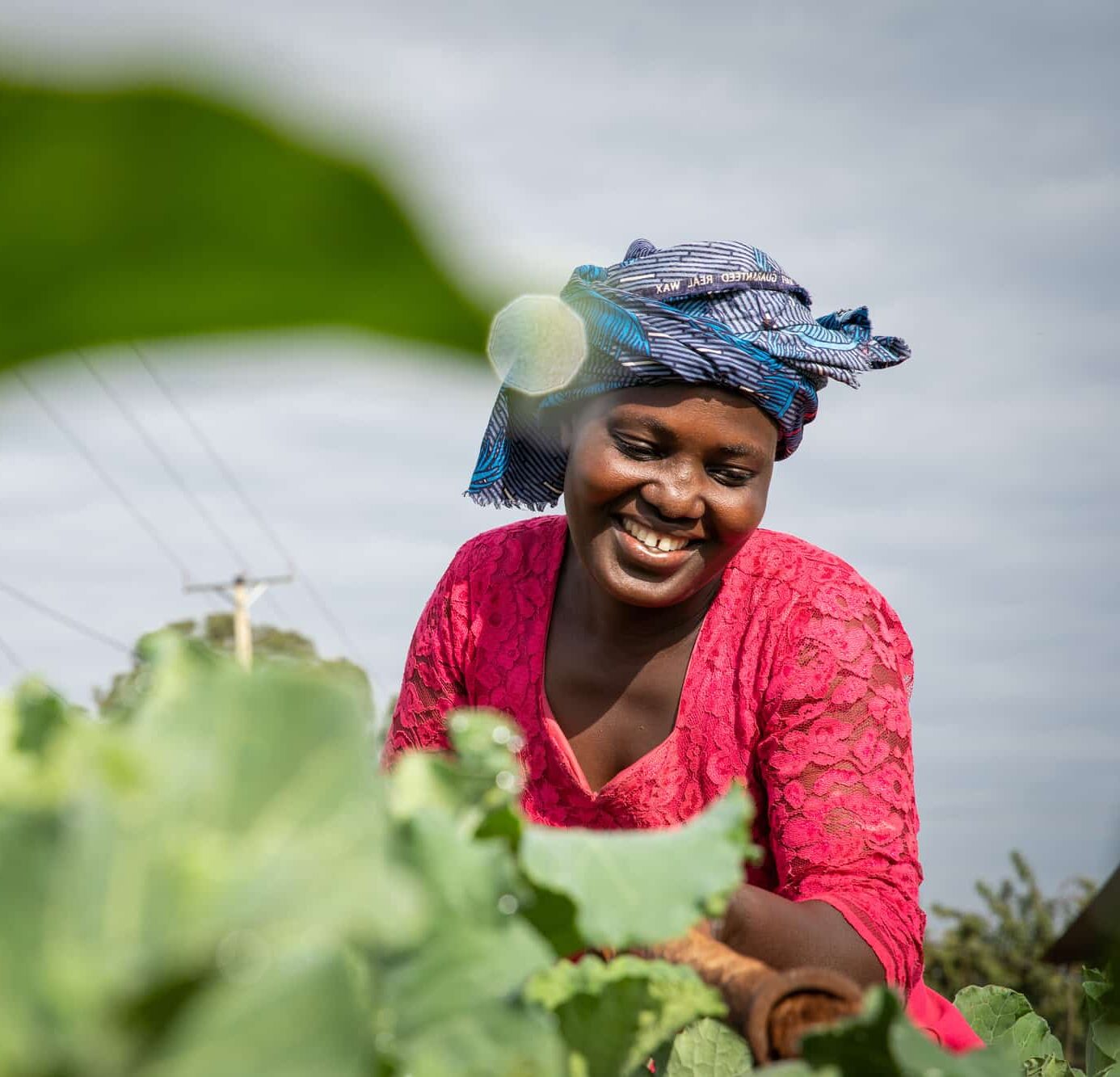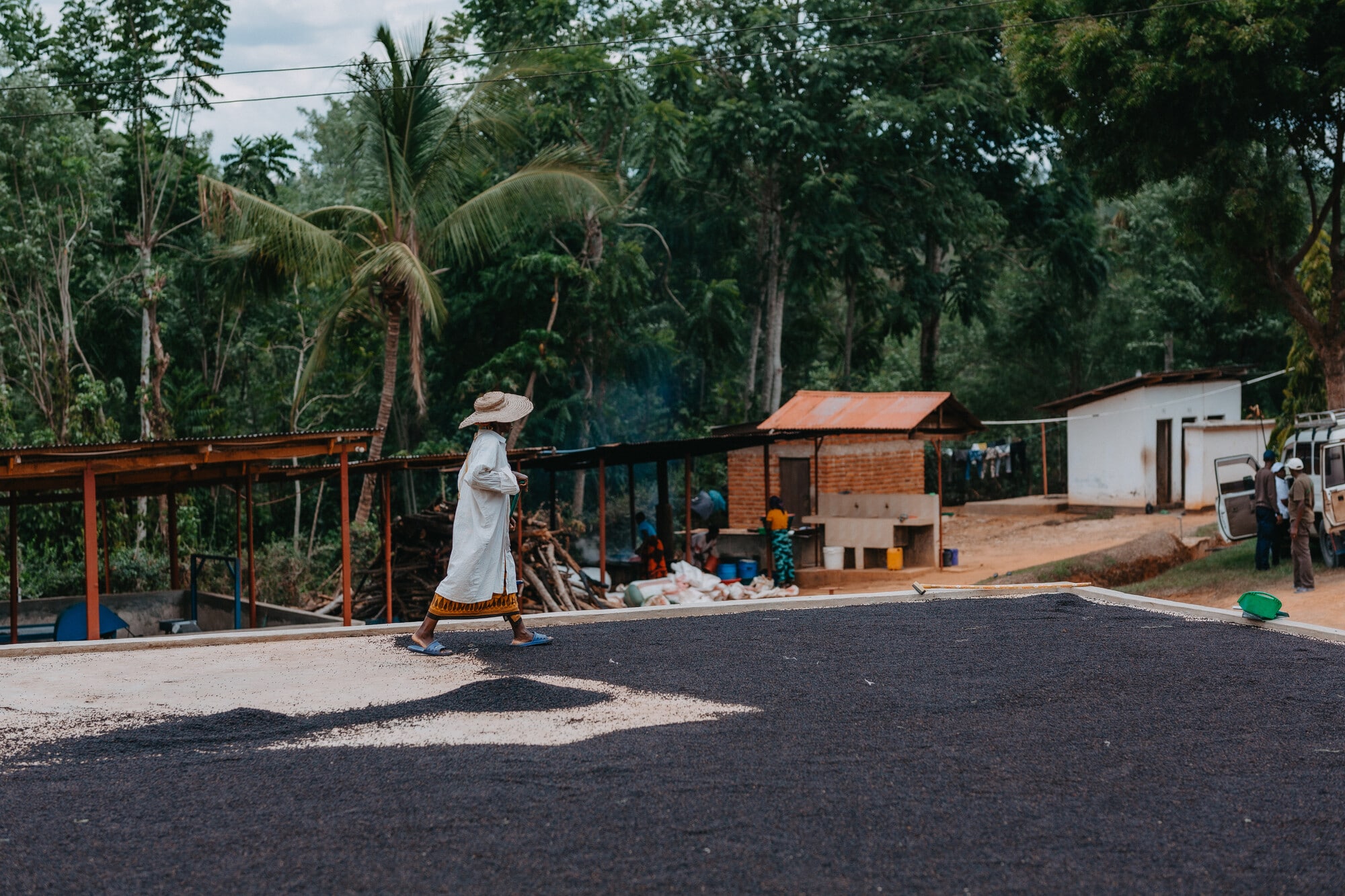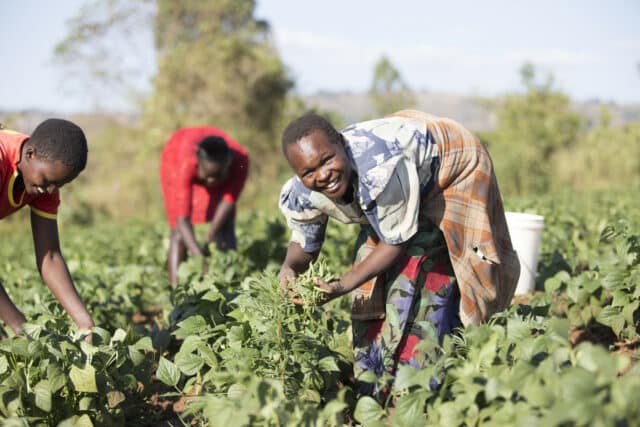The problem
Our current food system contributes to climate change, produces the wrong food and destroys ecosystems and biodiversity.


Unsustainable agricultural practices contribute to soil degradation and nutrient depletion, further reducing land productivity and degrading arable land.

The opportunity
A fundamental rethinking of global and local food systems could reduce poverty, food insecurity, climate change and biodiversity loss.
When food systems are sustainable, it means that food is produced in a way that gives everyone, everywhere access to a sufficient quantity of healthy, nutritious food, without causing net damage to the environment.

The outcome
When food systems are strengthened, farmers are able to access the finance, inputs and knowledge of agricultural practices so they can increase their production of food. They are able to find buyers for their produce, so they can make a profit.
The production and onward journey of food is sustainable and does not deplete resources such as water, soil, forests and grazing lands, meaning it does not reduce farmers’ ability to produce more food in the future.
The availability and affordability of nutritious food increases, as does awareness of the health benefits of balanced diets.

Farm Africa helps to strengthen food systems by:
- Implementing a holistic, systems approach that looks at the connections between producers, consumers, the environment and policy, and simultaneously diversifies livelihood options, builds climate resilience, and reduces deforestation and loss of biodiversity.
- Looking at the value chains of the crops and animals smallholder farmers produce, or could potentially produce, and identifying the bottlenecks they face. That’s where we target support, whether it is increasing production, developing or strengthening input markets, organising aggregation or providing access to finance.
- Supporting farmers to reduce food loss and waste by improving post-harvest handling of produce, improving storage and securing buyers for their produce.
- Increasing women and young people’s participation and influence in the food and farming sectors.
- Promoting environmentally friendly methods of food production such as regenerative agriculture, which improves soil health and reduces carbon emissions.
- Using evidence and data to inform the design of our future programmes and influence the policy and practice of local and national governments, donors, the private sector and other NGOs so that sustainable food production practices can be replicated at a larger scale.
Related resources
Country
Kenya
Key focus areas
Empower women
Increase incomes
Strengthen food systems
Growing Resilience And Opportunities for Women (GROW) Roundtable Report
In October 2024, Farm Africa convened a roundtable discussion with female industry leaders in Nairobi, Kenya as part of its Growing Resilience and Opportunities for Women (GROW) initiative. This report summarises the key themes and conclusion of the discussion, which explored women’s role in the global food system and ways to drive positive change.
Download (2.16mb)
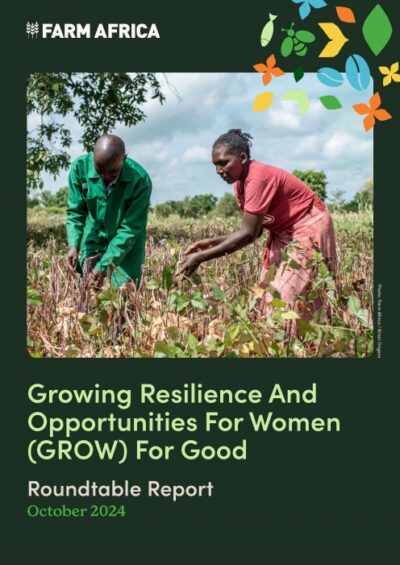
Country
Kenya
Key focus areas
Empower women
Increase incomes
Strengthen food systems
Country
Kenya
Key focus areas
Boost productivity
Increase incomes
Strengthen food systems
The Village-Based Advisor (VBA) model
Agricultural extension services to farmers are vital for enhancing productivity and production of agricultural produce in Kenya. However, the ratio of agricultural extension workers to farmers stands at 1:5,000 compared to the recommended ratio of 1:400. This paper outlines how Farm Africa and AGRA are helping to plug this gap in Embu and Tharaka Nithi counties by creating a network of Village-based Advisors (VBAs) made up of well-informed, passionate farmers who receive specialised training to provide technical extension services, inputs and market linkages to other services to other farmers.
Download (4.21mb)
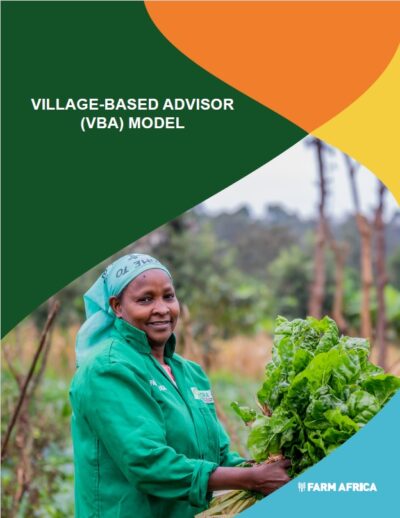
Country
Kenya
Key focus areas
Boost productivity
Increase incomes
Strengthen food systems
Country
Ethiopia
Key focus areas
Connect farmers to markets
Increase food security and nutrition
Strengthen food systems
Strengthening agricultural market systems
A summary report of Farm Africa’s market systems project in Amhara, Ethiopia, which aimed to improve food security and livelihoods of small-scale farmers by making market systems more inclusive. This project was part of the Growth for the future project, funded by Sida.
Download (1.21mb)
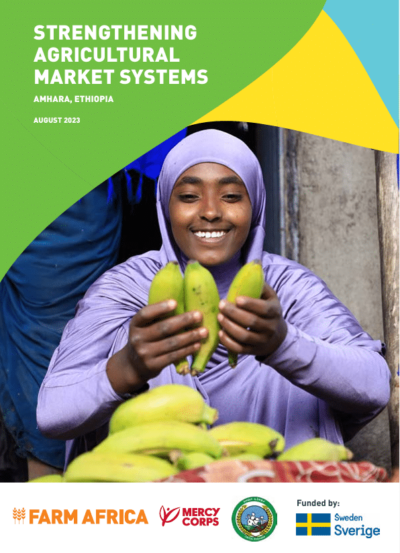
Country
Ethiopia
Key focus areas
Connect farmers to markets
Increase food security and nutrition
Strengthen food systems
Country
DR Congo
Key focus areas
Act on climate change
Boost productivity
Boost youth employment
Connect farmers to markets
Empower women
Increase access to finance
Increase food security and nutrition
Increase incomes
Protect ecosystems
Strengthen food systems
Support businesses
Farm Africa strategic plan 2021-2025
Farm Africa is a leading NGO specialising in promoting sustainable agricultural practices, strengthening markets and protecting the environment in rural Africa. Our strategic plan for the years 2021-2025 outlines our ambitious plan to grow and unlock the potential of agriculture to transform rural Africa.
Download (1.47mb)
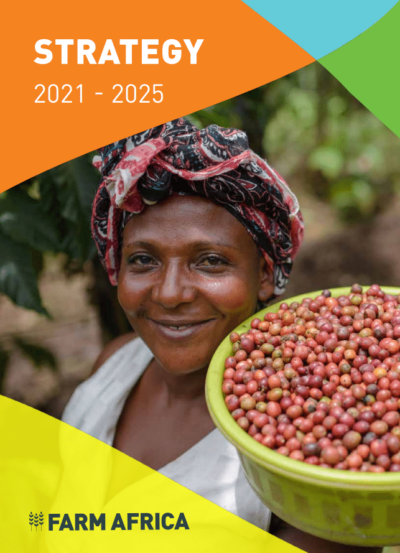
Country
DR Congo
Key focus areas
Act on climate change
Boost productivity
Boost youth employment
Connect farmers to markets
Empower women
Increase access to finance
Increase food security and nutrition
Increase incomes
Protect ecosystems
Strengthen food systems
Support businesses
Country
DR Congo
Key focus areas
Connect farmers to markets
Protect ecosystems
Strengthen food systems
Virunga National Park Coffees
Farm Africa is working with the Virunga National Park to unleash the potential of two coffee cooperatives and boost the livelihoods of over 7,000 coffee farming families living on the border of Virunga National Park, reducing pressure on the park’s resources and lifting people out of poverty.
Download (3.67mb)

Country
DR Congo
Key focus areas
Connect farmers to markets
Protect ecosystems
Strengthen food systems
Country
Kenya
Key focus areas
Boost productivity
Strengthen food systems
Support businesses
Kenya Market-led Aquaculture Programme (KMAP) Guide to profitable fish farming 2019
This 16-page guide shares lessons from Farm Africa’s Kenya Market-led Aquaculture Programme, funded by the Embassy of the Kingdom of the Netherlands in Kenya, which worked across the fish value chain in 14 counties in Kenya. The project aimed to increase productivity, strengthen market systems and make the policy environment conducive so that farmers can turn their ponds into thriving businesses.
Download (8.02mb)

Country
Kenya
Key focus areas
Boost productivity
Strengthen food systems
Support businesses
